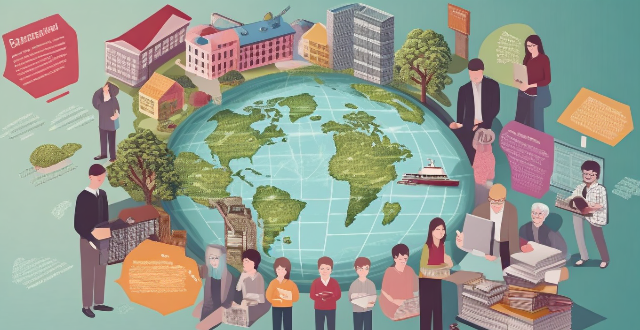International education programs play a crucial role in promoting global citizenship and understanding. These programs provide students with opportunities to study abroad, learn about different cultures, and interact with people from diverse backgrounds. By enhancing cultural awareness, building intercultural competence, promoting global issues awareness, and encouraging civic engagement, these programs help students to become more informed, empathetic, and active members of the global community.

International Education Programs: Promoting Global Citizenship and Understanding
International education programs play a crucial role in promoting global citizenship and understanding. These programs provide students with opportunities to study abroad, learn about different cultures, and interact with people from diverse backgrounds. In this way, they help to foster a sense of global connectedness and promote cross-cultural understanding.
Enhancing Cultural Awareness
One of the primary ways that international education programs promote global citizenship is by enhancing cultural awareness. By studying abroad or participating in exchange programs, students are exposed to new cultures, languages, and customs. This exposure helps them to develop a deeper understanding of the world around them and appreciate the diversity of human experience.
Key Points:
- Exposure to new cultures and customs
- Development of cross-cultural understanding
- Appreciation of diversity in human experience
Building Intercultural Competence
Another important aspect of international education programs is building intercultural competence. This involves developing the skills and attitudes necessary to effectively communicate and collaborate with people from different cultural backgrounds. By participating in these programs, students learn how to navigate cultural differences, build relationships across borders, and work collaboratively towards common goals.
Key Points:
- Developing communication skills across cultures
- Learning to navigate cultural differences
- Building cross-border relationships and collaborations
Promoting Global Issues Awareness
International education programs also play a vital role in promoting awareness of global issues. Through coursework, field trips, and other activities, students gain a deeper understanding of complex global challenges such as climate change, poverty, inequality, and conflict resolution. This knowledge helps them to become more informed citizens who are better equipped to tackle these issues on a local and global scale.
Key Points:
- Understanding complex global challenges
- Becoming informed citizens
- Tackling issues on a local and global scale
Encouraging Civic Engagement
Finally, international education programs encourage civic engagement by providing opportunities for students to participate in community service projects, volunteer work, and other forms of social action. By engaging in these activities, students develop a sense of responsibility towards their fellow citizens and become more committed to making positive changes in their communities and the world at large.
Key Points:
- Participating in community service projects
- Developing a sense of responsibility towards fellow citizens
- Making positive changes in communities and the world
In conclusion, international education programs are essential tools for promoting global citizenship and understanding. By enhancing cultural awareness, building intercultural competence, promoting global issues awareness, and encouraging civic engagement, these programs help students to become more informed, empathetic, and active members of the global community.